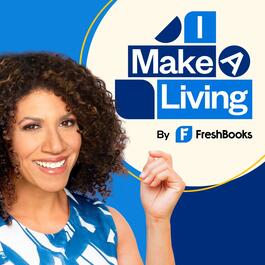
Chances are that your entrepreneurial idols were born after the turn of the millennium, but Ben Towers is here to change that. He’s been working since before his twelfth birthday, getting his start on web design projects for friends and family before launching into the stratosphere: we’re talking British Royal Family, angel investment, and consultancies with companies like GSK and IHG. In 2015, he was named to The Time’s Superteens list, and since then, he’s only gotten more polished in his business practices. He’s 22, and he’s been in business for half his life. Ben has a passion for tech – he was the kid in primary school who would “be taking apart the printers,” and at a young age, he was tapped by a family friend to build her website. He brought some previous experience to the job, and filled in the gaps by watching YouTube tutorials on things like how to add contact forms. He netted himself $50 and was super jazzed. Like many youthful entrepreneurs, his first expenditure was candy. But he’d caught the bug. He freelanced for most of his teens, ultimately selling his digital agency Towers Design to Zest The Agency in 2017: a buyout before legal drinking age. Growing the company meant growing out of his “craft,” which was coding, and into management and leadership. He stayed engaged in the work by allowing himself to sit in on client creative sessions, giving him a bird’s eye view and input in the creative ideation, without getting caught up in the nitty-gritty of the day-to-day. Ben managed 26 people by the age of 18, working with brands like Virgin Racing, and he credits his mentors with helping him get an array of skills. “For me, mentoring is not about having one person who is your mentor; it’s about having multiple mentors.” Ben started collecting his mentors when he was in his teens, calling on people to share their expertise in sales, marketing, finance, and other areas. Never having had a boss before, Ben knew he couldn’t rely on his own experience in the workforce to guide his management style, so he had to use his mentors’ inputs and opinions to help him lead his team. Before COVID, Ben maintained a robust speaking schedule, which he credits with helping him grow his client base. Clients included the inaugural Young Enterprise with the UK government, aimed at unlocking a Silicon Valley mindset in England, and working with the British Royal Family on their initiatives. He used COVID as a chance to reset a bit—”leave the laptop at home”—and travelled through India and Thailand, falling in love with the local focus on community. This focus influenced his work on Tahora, his community and culture app that he started in 2020. Tahora is designed for employees and their psychosocial needs, aiming to enrich their work community through better connections. He says that 47% of people don’t have a close friend in the workplace, leaving many folks without a sense of camaraderie and connection for long hours of the day. He shares the story of two employees who had trained for the same half-marathon without ever talking to each other about their hobby; his POV is that people’s well-being at work can be supported through friendships. Tahora comes from the Maori concepts of health and togetherness. “So often, we see community as just a group of people. In the Maori community, everyone has a part to play. Everyone belongs.”
From "I Make a Living"


Comments
Add comment Feedback